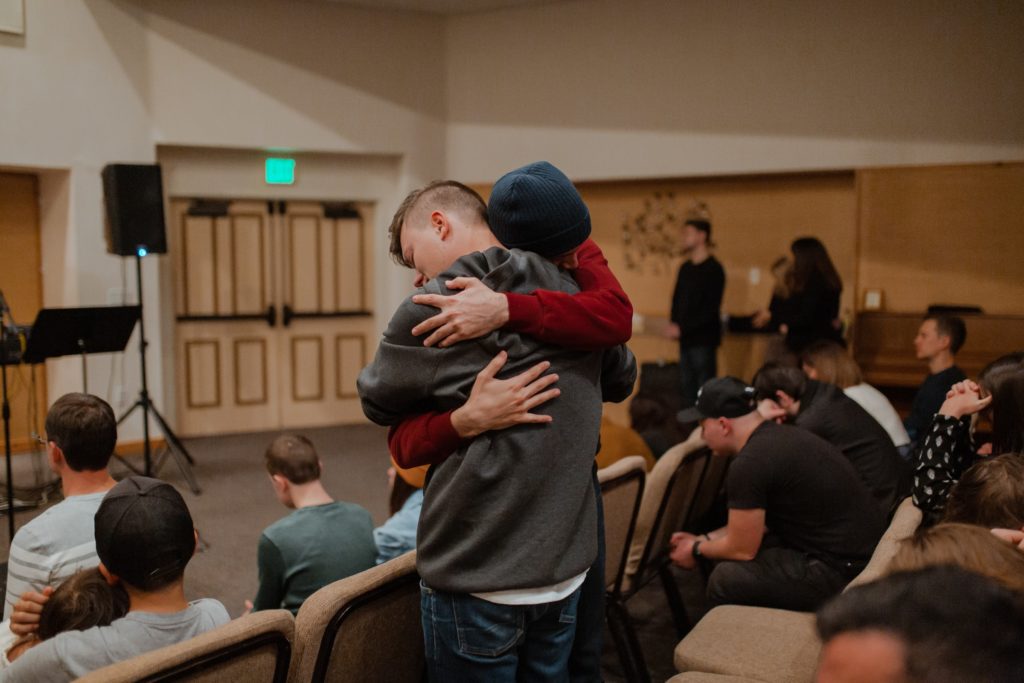“Right now we are in an age of religious complexity. The simplicity that is in Christ is rarely found among us. In its stead are programs, methods, organizations and a world of nervous activities which occupy time and attention but can never satisfy the longing of the heart. The shallowness of our inner experience, the hollowness of our worship, and that serville imitation of the world which marks our promotional methods all testify that we, this day, know God only imperfectly, and the peace of God scarcely at all.” (A.W. Tozer, The Pursuit of God, pg. 17)
The last four decades have witnessed an incredible surge in missionary activity. The Lausanne Movement launched in 1974 at the world congress in Switzerland sparked a worldwide revolution of innovative approaches to missions. Inspired by a strong desire to see the Great Commission fulfilled in our lifetime, myriad mission agencies took the challenge and began to implement major changes in their mission statements and strategies. Speakers at the Lausanne Congress raised concern for “hidden people,” those unreached by the gospel.
Earlier in this century, mission agencies had the tendency to gravitate toward “open doors,” places missionaries found more accessible and people were responsive. It was more expedient to plant churches in countries where the door was open. That was where mission agencies already had a foothold and had been well received. Through the Lausanne Movement, and the AD 2000 movement and their numerous offshoots, Christians the world over have been challenged to go to more difficult places. The Muslim world, which had been virtually ignored, suddenly jumped to the forefront of missions. New mission agencies began to emerge for the exclusive purpose of reaching Muslims. Thousands of people-groups in the Muslim world and everywhere else were identified. Plans to reach them were drawn up, and efforts began for the implementation of those plans. Church missions committees, guided by special interest groups like ACMC (Association of Church Missions Committees), became interested. Increasingly, they shifted their interest and support toward unreached people.
New Terminology
This challenge to shift attention to unreached people groups gave rise to an ocean of new terminology. Each term and expression represented its own philosophy of ministry, methodology, and theological perspective. We began to hear about contextualization, Common Ground, Insider Movement, Camel Method, People Groups, MBB, Creative Access missions, the 10/40 window, and so forth. A host of research projects was initiated. Data gathering and dissemination of information constituted the lion’s share of this frenzy of activity. Literally millions of dollars went into hardware, software and networking to collect and share data gathered on “every nation, tribe, people, and language.” Now statistics dominate the pulpit, and there are innumerable publications, journals, and missionary letters that treat data as part and parcel of the Great Commission.
Positive Developments
What has all this done to the kingdom of God and the spread of the gospel? The answer must not be oversimplified. On one hand, much is positive. It is exciting to see heightened awareness of unreached people, resulting in more publications, more missionaries, more training programs, more seminary emphasis on missions, more money, more numbers, and more prayer. I rejoice that in my lifetime, God has opened up the closed doors of Eastern Europe, the former Soviet Union, and most of the Muslim world. As a result, the Bible became available and the internet penetrated cyberspace. Christian Cable TV defied governmental controls and entered millions of homes. Muslims have come to Christ in the thousands and many churches have been established. In certain places missionaries were not only welcomed but even invited to areas where no missionary could previously go. Creative Access missionaries were able to enter the toughest Muslim countries and make an impact wherever they went. We rejoice thankfully for what God has done.
The Gospel is Lost
Yet on the other hand, we have lost something of extreme importance. With the horizontal growth has come a loss of depth: the purity of the gospel. We have concentrated on programs and activities; we have become enamored with cultural diversity, methodology, and statistics at the expense of compassion for the lost souls of people from every nation, tribe, and language. The value of the individual has been downplayed as we have aspired to see group conversions, which give more statistically significant results. The simplicity and purity of the gospel has suffered greatly at the hands of our sophisticated and well-articulated missiological theories. Boldness has given way to cultural sensitivity even secrecy. The transformational power of the gospel has been surrendered to low-key methods of church planting and people movements. “How lovely on the mountains are the feet of him who brings good news” (Isaiah 52:7) has been replaced by air waves, mass media, and other impersonal channels of communication. The private prayer lives of godly men and women who labored on their knees in former times have been been replaced with public concerts of prayer. and high-powered prayer teams who spend massive dollars and time praying around “Jericho” without ever talking to a soul about the Lord or making an attempt to stay in the land and take possession of it.
Consequently, the national church has often been undermined. Traditional missionary approaches have been mocked and set aside in favor of better, more effective, expedient, and missiologically correct methods. I have felt the deep pain of finding no viable body of believers after traveling to locations where thousands were reported to have come to Christ. When I asked where these thousands have gone, no clear explanation was given. Yet reports continue to be mailed to donors without any attempt to qualify exaggerated statistics. Such incidents have escalated over the years, and I wonder if the interest in statistics, theories, and methods has caused us to lose our compassion for people who are lost. Creating new and innovative programs appears to be more important than seeing believers grounded in the Word of God and growing into “living stones” in the body of Christ.
Excuses, Excuses, Excuses
To our great shame, we have devised many excuses to calm our consciences and carry out non-evangelistic activities behind the veneer of our self-made missiological theories and methods. We have embarked on an aimless journey and failed to appropriate the power of the gospel. We have sold ourselves to academicians who may or may not have had successful histories of ministry, yet we elevate them as “missions experts.” Would we go to a doctor who has not practiced medicine for the last ten years? Whatever happened to the model of Jesus, who walked among sinners with his disciples, preaching, teaching, and ministering to the needs of the people for whom he gave his life?
We are guided more by psychology, anthropology, and other social sciences than by the Bible, although, of course, we have managed to find biblical support for our ideas. Our training programs are filled with topics on cross-cultural communications, group dynamics, administrative skills, counseling and how to’s. We have become more human-centered than God-centered. Whatever happened to training conferences which stressed self-denial, forsaking all, the cost of discipleship, obedience, walking with God, and knowing the will of God?
Can God Use Us?
We have become “bigger and better,” but we have lost our humility and our first love. Have we forgotten that Christ is the one who is building his church? We are merely his servants, privileged to participate only as we rely on the Spirit’s guidance. Have we outdone God by stepping ahead of him? Will the Lord of Hosts tell us what he told Gideon: “You have too many men for me to deliver Midian into their hands. In order that Israel may not boast against me that her own strength has saved her… I will sift them out for you…” (Judges 7:2-4)? Are we willing to let God sift our ranks until only those who are truly called by God are left?
“Have we become too powerful, too rich, too wise, too intelligent, too big, too calculated for God to deliver the nations into our hands?”
Have we become too powerful, too rich, too wise, too intelligent, too big, too calculated for God to deliver the nations into our hands? Do we honestly believe that it is “not by might, not by power, but by God’s Spirit” (Zechariah 4:6)? How far will we go on this path before we realize that we are doing a disservice to Christ and to the gospel by calling ourselves messengers of the gospel and doing everything else but preaching the gospel? How far will we go with our well-engineered social, humanitarian, professional, and cultural gospel before we realize we are helping people become healthier, wealthier, and more educated sinners rather than snatching them from the fire of hell (Jude 23)?
We talk about preaching the gospel and bringing the gospel to unreached cultures. Yet, realistically, we are engaging in many nice activities that do not include a clear presentation of the gospel. Often, we act as if we can trick people into the kingdom by giving them the impression that they can stay as they are; they only need to add Jesus. Will injecting Jesus into their system make them regenerate? Or are we in effect inoculating them against the gospel as I have seen in many instances? We need to take a hard look at our work and ask ourselves if we are truly reaping eternal results.
We Must Repent
It is time for us to get angry, to rebel against the wonderful and innovative approaches we have designed for ourselves while ignoring God’s instructions and the model of Jesus and Paul revealed in his Word. It is high time for us to reform our ways, get on our knees, and repent from our divergence. Many have told me: “Do not judge them, look how they are sacrificing comforts back home to go to the Muslim world?” Well Jesus is well aware of this when he said to the church in Ephesus:
“You have persevered and have endured hardships for my name, and have not grown weary. Yet I hold this against you: You have forsaken your first love. Remember the height from which you have fallen! Repent and do the things you did at first. If you do not repent, I will come to you and remove your lampstand from its place.” (Revelation 2:3-5)
The Power of the Gospel
Good intentions and hard work for the Kingdom is not a good substitute for preaching the unadulterated gospel of salvation and transformation. Indeed let us heed the command of Jesus who is our boss to return from the far away places we have traveled to. Let us also draw closer to Jesus, and let him train us in his ways. Let us turn away from the public eye and devote ourselves to knowing God intimately through a personal life of prayer until God begins to use us effectively in bringing lost sheep into his fold. Let us return to the purity of the gospel, to the simplicity of proclamation, and lay aside all our man-conceived wisdom which in the eyes of God is foolish and worldly. Let us learn from Paul, who affirmed:
“When I came to you, brothers, I did not come with eloquence or superior wisdom as I proclaimed to you the testimony about God. For I resolved to know nothing among you except Jesus Christ and him crucified… My message and my preaching were not with wise and persuasive words, but with a demonstration of the Spirit’s power, so that your faith might not rest on men’s wisdom, but on God’s power” (1 Corinthians 2:4-5).
Trusting God Is the Answer
Am I speaking against methods, technology, and training programs? Not at all. However, it is imperative for our focus to change. God has given us human and material resources which we do well to use. In fact it would be bad stewardship not to utilize the most effective methods of spreading the gospel. Nonetheless, we must honestly ask ourselves whether we are relying on God or on our methods for effectiveness in ministry.
When Jesus told his disciples that it was impossible for a rich man to enter the kingdom, he was not condemning money. Rather, he was against those who rely on their riches and successes in life instead of on God. God may use chariots and horses to do his will, but we are to trust in him, not in them. Moses, Joshua, Gideon, David, Jeremiah, Nehemiah and many others of God’s warriors had weapons and material power, but whenever they relied on them, they failed. When they learned to trust only in God and His power, they won.
God taught these men to trust him by giving them victory through sometimes “foolish” methods which he instructed them to follow. Clay jars and trumpets were no match for the Midianites. Jonathan and his armor-bearer risked their lives based on their belief that “God is not restrained to save by many or by few” (1 Samuel 14:6). David was no match for Goliath. The twelve disciples amazed people and turned the world upside down because “they had been with Jesus” (Acts 4:13). Could the same be said of us?
Editor’s Note: This article was originally published on Biblical Missiology. Used with permission.




